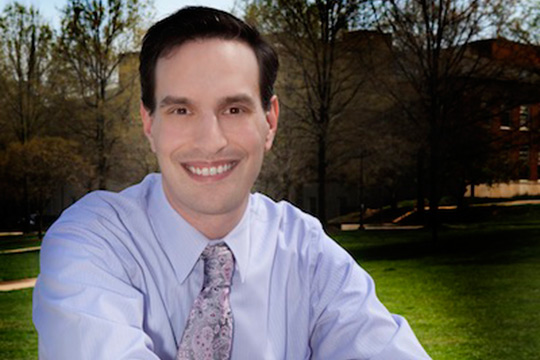TC's Noah Drezner is Honored by CASE for Research on Philanthropy
Noah D. Drezner, Associate Professor of Higher Education, has received the John Grenzebach Award for Outstanding Research in Philanthropy for Educational Advancement from the Council for Advancement and Support of Education (CASE). The award recognizes Drezner for "The Social Base of Philanthropic Fundraising in Higher Education: How Frames and Identity Matter," a recently completed a population-based survey experiment that evaluates how social identity affects propensity to donate in response to different types of fundraising solicitations.
Noah D. Drezner, Associate Professor of Higher Education, has received the John Grenzebach Award for Outstanding Research in Philanthropy for Educational Advancement from the Council for Advancement and Support of Education (CASE). The award recognizes Drezner for “The Social Base of Philanthropic Fundraising in Higher Education: How Frames and Identity Matter,” a recently completed a population-based survey experiment that evaluates how social identity affects propensity to donate in response to different types of fundraising solicitations.
Drezner, who joined TC’s faculty in Fall 2014, is a leading authority on educational philanthropy and how colleges and universities can engage their alumni in more inclusive ways. He is co-principal investigator for the National Study of Lesbian, Gay, Bisexual, and Transgender (LGBT) Alumni, a multi-institutional mixed methods project.
More specifically, Drezner, a former advancement officer at the University of Rochester, has explored issues such as whether alumni who received need-based financial aid are more or less likely to give to higher education institutions than those who received merit-based aid; and how gender, race or sexual orientation affect a donor's propensity to give or level of giving.
The survey experiment for which Drezner is being honored evaluated attitudes toward two randomly assigned fictitious solicitation letters, created using different possible donor identities and motivations that have emerged in prior scholarship,. The letters describe an individual student: (1) who is meritorious, (2) has general financial need, (3) is a first-generation college student, (4) is gay or lesbian with lack of parental support. Three additional conditions were varied randomly across respondents: gender, race/ethnicity, and name of the student. The experiment allowed Drezner to understand how solicitations that mirror donor identity effect philanthropic giving. In a field in which the research has been almost entirely qualitative, Drezner’s survey experiment included s over 1600 respondents. In his initial analysis, Drezner did find that those who share higher number of social identities with the student profiled in the solicitation letter are more likely than others to assign more importance to the causes described in the letters. He also found that women and those with marginalized identities (race and sexual orientation) showed greater interest in solicitations in supporting other marginalized individuals, even if it was not a direct shared identity.
Drezner’s past honors include the CASE 2009 H.S. Warwick Award for Outstanding Research in Alumni Relations for Educational Advancement , which he received for his dissertation, Cultivating a Culture of Giving: An Exploration of Institutional Strategies to Enhance African American Young Alumni Giving;; the Association of Fundraising Professional’s (AFP) 2014 Skystone Partners Prize for Research on Fundraising and Philanthropy, for Expanding the Donor Base in Higher Education: Engaging Non-Traditional Donors. He was named the inaugural AFP Early Career Emerging Scholar in 2014.
Published Wednesday, Jun. 17, 2015
